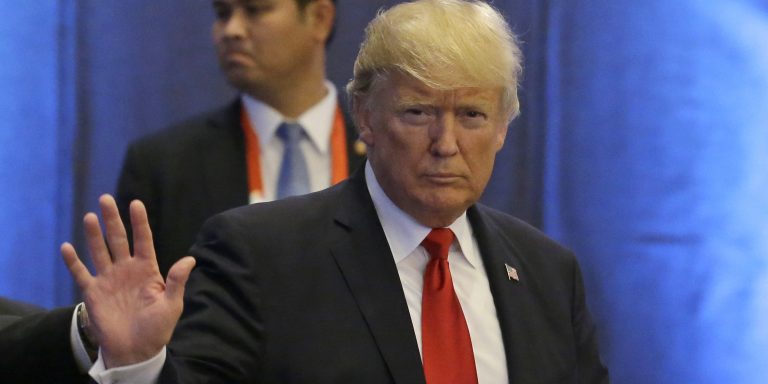INTELBRIEF
November 13, 2017
TSC IntelBrief: President Trump’s Ad Hominem Foreign Policy

• On November 11, President Donald Trump renewed his unprecedented public battle with the U.S. intelligence community.
• The President called the former directors of National Intelligence, the CIA and the FBI ‘political hacks’ and hedged on U.S. assessments that Russia interfered in the 2016 election.
• President Trump also tweeted a fresh round of the ad hominem attacks that have been normalized as tools of U.S foreign policy in his administration.
• The President showed open disdain for international diplomacy and leadership, framing U.S. policies on the basis of whether a world leader is ‘his friend.’
On November 12, White House Chief of Staff John Kelly told reporters covering President Donald Trump’s five-nation Asia trip that the President’s latest controversial tweets, ‘are what they are.’ It was a remarkable sidelining of the President’s views, given that his tweets are nothing less than official White House statements. The weekend saw the President tweet attacks on the former chiefs of National Intelligence, the FBI, and the CIA, along with statements personalizing U.S. foreign policy based on his perceptions of other leaders' friendship with him. The consequences of the President’s behavior include both increased political and social divisions in the U.S. and a decrease in perceptions of U.S. relevance and leadership everywhere else.
It is difficult to precisely frame the current U.S. approach to foreign policy. Consistency appears to be almost entirely oppositional, especially when it comes to multi-lateral agreements and institutions. Since taking office the Trump administration has opposed treaties such as the Trans-Pacific Partnership and the Paris Agreement on climate change, and has questioned the relevance of international organizations including the European Union and the United Nations. As the U.S. decides on its next diplomatic pivot in Asia or Europe, those regions will simply pivot around the U.S., since ‘America First’ doesn’t work well in foreign affairs.
Another consistent theme is the President’s framing of U.S. relations with other countries in terms of whether he and a respective leader are ‘friends’. On November 12, President Trump tweeted that ‘haters and losers’ couldn’t understand why the U.S. should have good relations with Russia; he went on to mock former President Barrack Obama’s relationship with Russian President Vladimir Putin as well as former Secretary of State Hillary Clinton’s failed effort to ‘reset’ U.S.-Russian relations. According to President Trump, his friendship with Putin could get Moscow to ‘help’ the U.S in Syria and Ukraine. The notion that ‘friendship’ between the two leaders would compel Russia to stop its invasion of Ukraine and illegal annexation of Crimea is ahistorical and destined for failure. President Trump then mocked North Korean leader Kim Jong-Un, tweeting ‘I would NEVER call him “short and fat,”’ adding, ‘Oh well, I try so hard to be his friend - and maybe someday that will happen!’ Former C.I.A. Director John Brennan and former National Intelligence Director James Clapper both expressed concern on CNN, saying the President’s tendency to want to be ‘friends’ with world leaders could make it very likely that world leaders could ‘play’ him — ‘rolling out the red carpets and honor guards’ — to get their way.
The former Directors made those remarks after President Trump attacked them — and former F.B.I. Director James Comey — as ‘political hacks’ and flatly labeled the investigation of Russian interference and influence in the 2016 election a ‘Democratic hit job.’ The President also said he believed Putin was sincere when he denied Russian election interference. He then added, during a press conference in Vietnam, that he believed the U.S. intelligence community ‘as it is currently constituted, with their leadership.’ However, the President again refused to state flatly that he believed that Russia waged a campaign of disinformation and influence shaping, which is the official assessment of the U.S. intelligence community. As the independent investigation into Russian impact on the election, and crises such as Syria, Yemen, the Gulf, transnational terrorism, and other issues persist, the Trump strategy of ad hominem and personality-based foreign policy stances will become more problematic.
For tailored research and analysis, please contact: info@thesoufancenter.org
.
.